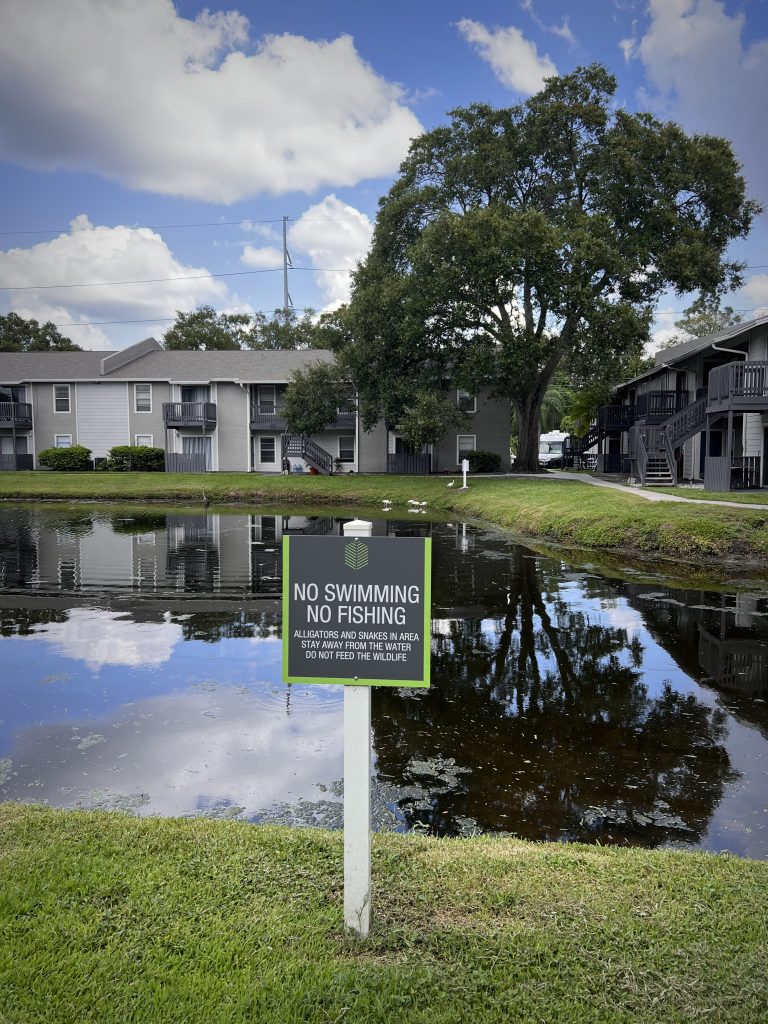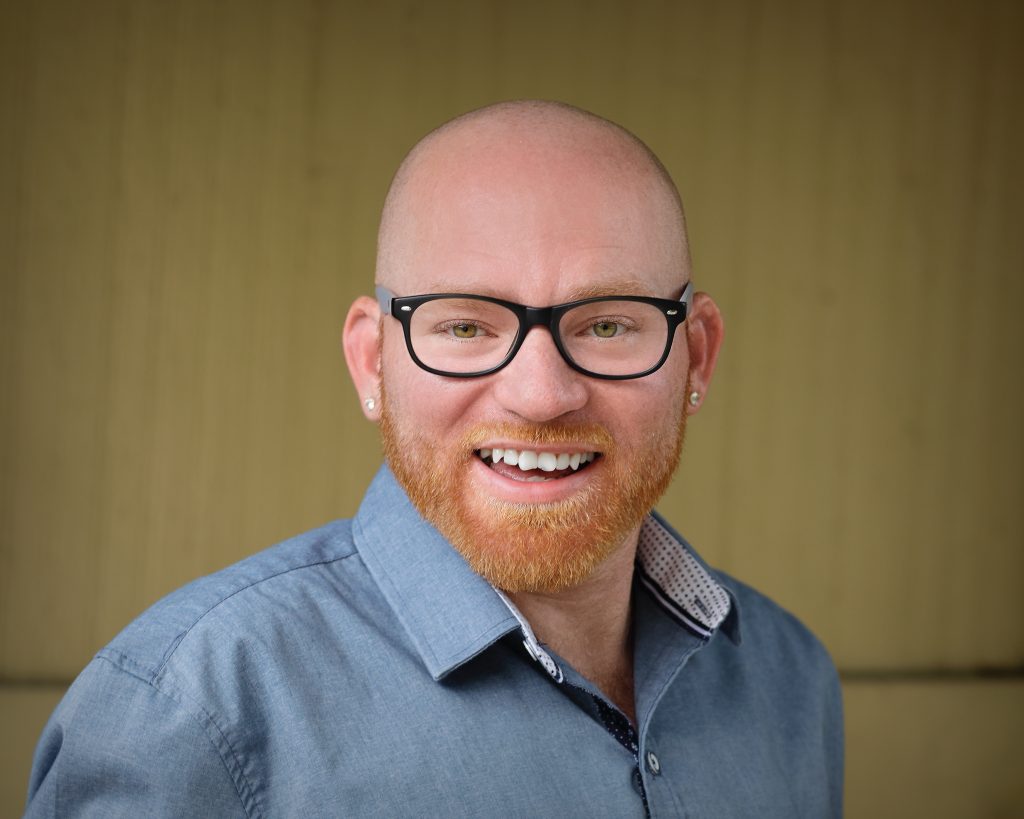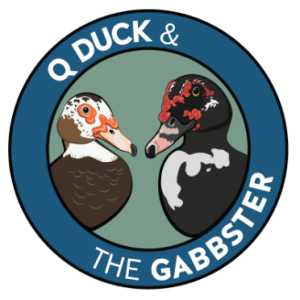Kirkwood Lawler had a lot on his mind in January 2018. Over a few weeks, he discovered his car needed $7000 in repairs, his apartment lease was not being renewed, and – without reliable transportation – he soon lost his job at a real estate office in Tampa.
“Honestly, a lot was going wrong in my life at the time,” Kirkwood recalls. “When it was raining, it was pouring.”
Out of a car, a job, and soon to be out of home, you might forgive him for not answering a tiny plea for help.
“It was by far one of the weirdest things to happen,” he remembers, “but also one of the coolest because it was so unexpected.”
One afternoon amid all this, over the din of a conversation with his roommate, Kirkwood heard a call.
“One thing I always loved about living in Florida,” he says, “was having my windows open, feeling the breeze, hearing the nature in the background.” It’s a lucky thing for everyone that the weather was nice that day because, through the open windows of Kirkwood’s second-floor apartment, he knew something was wrong.
“I really couldn’t tell you what the conversation was at the time, but I remember telling my roommate to pause for a second because I heard the sound of something – something in need,” Kirkwood recalls. “And of course, he’s looking out the window thinking someone’s yelling for help, but that’s not what I was hearing.”
He ran down the stairs and out to the large pond on the grounds of his apartment complex, trying to follow the incessant sound. Kirkwood, who grew up around animals, was certain he knew what it was, if only he could find it.
“I was hearing the chirping of a baby duck for sure,” he said. “It was a cry for help. It wasn’t just, you know, ‘It’s a beautiful day in Florida’ type of chirp.”
Duckling cries can be heard over quite a distance – they’re loud and insistent when they’re in distress, and Kirkwood had a lot of ground to cover.
“It’s almost like there’s no breath in between the chirps. It is just like a constant chatter,” says Kirkwood. “And here I am, just circling this pond, going left, going right, going back, going forward, trying to use my ears to figure out where this chirp is coming from and try to get the direction of it. And as I’m going around, I don’t see any other ducks, really. Then I crossed the bridge, and as I crossed the bridge, the noise got louder and so I knew I was on to the right track.”
Kirkwood’s persistence paid off.
“Here I am down by the water’s edge, looking, looking, looking, and there in a high pile of grass was the cutest, most adorable duckling. And it was just sitting there chirping its little heart out. I mean, it was breathing hard and everything.”
With no sign of the duckling’s mother or siblings – in fact, no other ducks at all – Kirkwood decided he needed to help the little guy. Even in an urban environment, there’s no end to the predators who would gladly snap up a lone, defenseless duckling, from cats and racoons to raptors and even rats.
“He did not try to run from me. I literally reached down, picked him up – I scooped him up in my hand because he was tiny. He was just days old maybe.”
Later Kirkwood would learn that it’s possible the duckling was even younger, as it kept its “egg tooth,” or the temporary sharp point on its beak to help it break its shell, for several more days.
Kirkwood brought the tiny duckling upstairs and let him wander in his room.
“He would follow me, but he had this limp. I just knew something was wrong. Something was off. I kept an eye on him, but I noticed, ‘Man, that leg just doesn’t want to cooperate.’ It stayed bent; it didn’t want to straighten to allow him to walk.”
Kirkwood was no stranger to helping animals and, growing up in Illinois, had ducks and chickens as pets. But given his current circumstances – and the uncertainty of the duckling’s health – Kirkwood decided instead to put some bedding in a box and take him to a local animal hospital.
“I was told they would give him the help that he needed, but I didn’t know at the time if that’s just what they were going to tell me, to reassure me,” he remembers. “I was kind of on the fence about it because you just never know.”
Ultimately, Kirkwood put his faith in the hospital and said goodbye to “that noisy little duckling,” as he fondly remembers him. It would be years before he knew if he made the right decision.
Muscovy ducks are considered an invasive species and cannot be released anywhere in Florida. Even a duckling taken for a few days from its home pond cannot be re-introduced to that pond. When there’s no place to send them, hospitals will sometimes euthanize Muscovy ducks and ducklings. Unbeknownst to Kirkwood, that could have happened here. But this duckling had a different fate.
Months before, I had begun my own adventure in duck rescue with an injured Muscovy. When I’d last been to the hospital with him, I asked the staff to call me if another Muscovy duckling needed a home. And so it happened in a manner of days that Kirkwood’s rescue became Q Duck’s little sibling – Gabbster.
After a night of observation, the vets had decided the duckling was healthy. There was no sign of injury to his leg. “He was very young, so it could have just been a day or so that his leg would have straightened out,” Kirkwood says now, “but I don’t know if he would have made it in that patch of grass overnight. There was a part of me that still thought, even after I left him, ‘Did I do the right thing?’ It wasn’t until three and a half years later that I found it was.”
While Gabbs was one lucky duck, it’s not always easy to tell when a young bird needs rescuing. For more on that, we checked in with Shelley Vickery, Director of Birds in Helping Hands.
As for our hero, Kirkwood has gone on to happier days. He’s now working as a certified medical assistant back home in Illinois and aspires to help people and travel the world as a flight attendant. The animal lover and self-proclaimed “reptile guy” keeps three saltwater fish tanks and dreams of getting back to the Sunshine State.
“I enjoy seeing lizards when I walk into Walmart,” he says with a laugh. “I don’t have that here. My goal is to get back to Florida – and I will.”








SO happy you found Gabbs!! I love following their to stories!! I fell in love with Muscovies about 8 years ago, HAVE to have some around! ❤️ Thank you for all you do!! 🥰
Thanks Laurie!! Muscovies deserve our love and appreciation 💛🦆💛… plus Duck people need to stick together!
Love everything about this! Thank you, Kirkwood!! 💛💛💛
Kirk is one of the absolute best people I know. His heart is incredible. The way he helps both animals and people, like this duckling for example, goes to show that we need more people like him in this world! Thanks for sharing!!!
💛💛💛